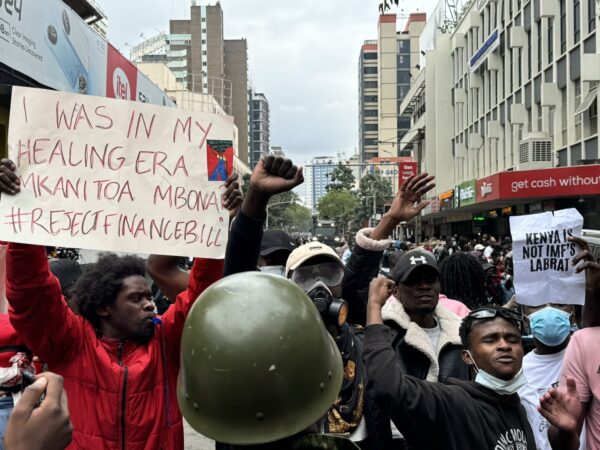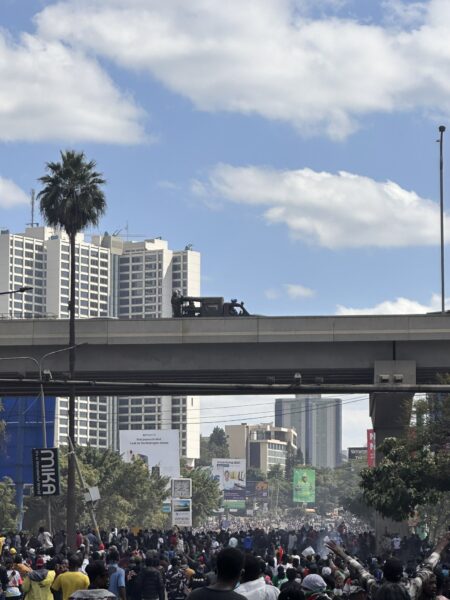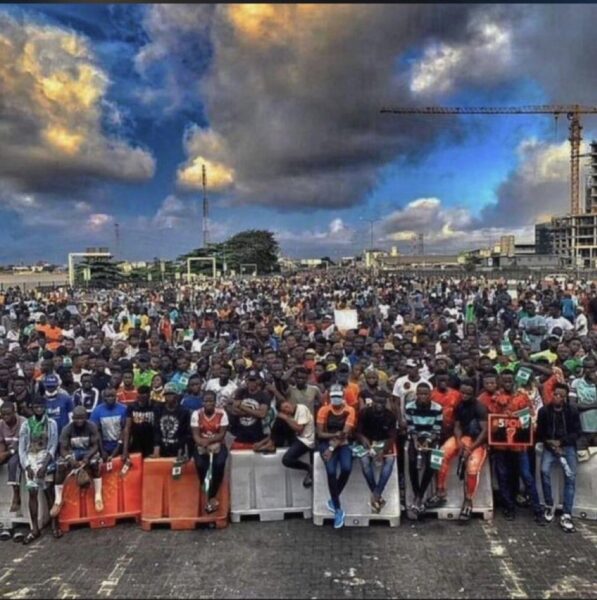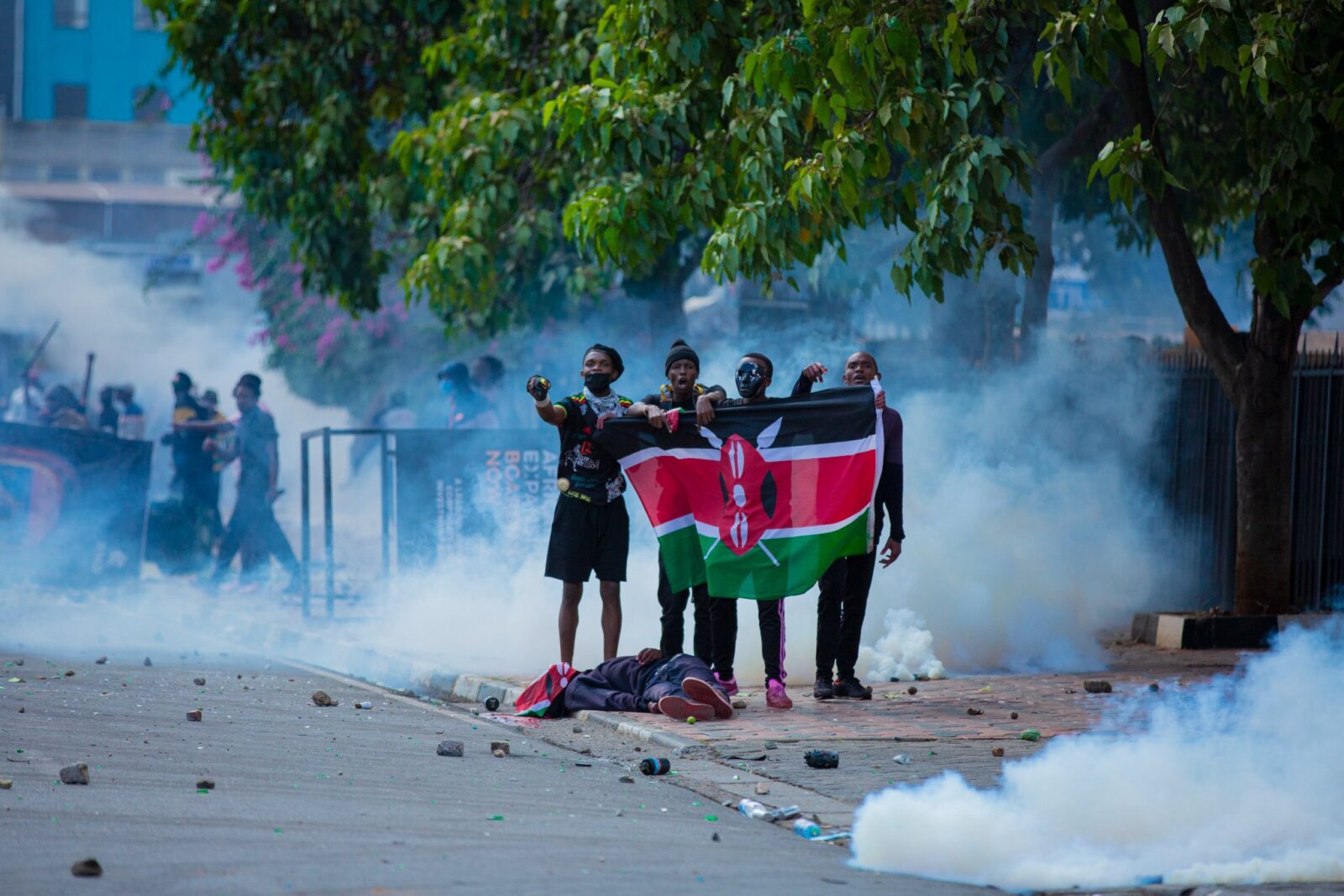By Toyin Falola
The philosophical use of a mirror is that you can see yourself through the image of another. In the 1940s, a concept of the Indian mirror emerged when that country became independent of Britain in 1947. In Africa, nationalist fighters posed the question: why can’t we be like India? Today, be it Uganda, Nigeria, or Ghana, the question is: why can’t we be like Kenya? The Kenya mirror is spreading like a bushfire. As a public intellectual, this is the question that people are posing to me from various countries. I will focus only on Nigeria, where Kenya is now the most popular country.
A Yoruba adage says, “Iku t’on pa ojugba eni, owe l’on pa fu’ni,” meaning the death that takes one’s contemporary is only sending one a message that it will soon be time to die. This adage draws Nigerian attention to the crisis that has thrown Kenya into chaos in the past few weeks. For a recap, the youth have taken to the streets, shut down the parliament, and continuously called out Ruto and his subordinates after inconsiderate financial policies despite the suffering of the people. The Kenyan situations quicken the spirit of millions about the state of Nigeria, the similarities in these regrettable developments, and how Nigerians could predictably respond. To repeat, the Kenyan mirror is not a Nigerian phenomenon.

Kenya is currently undergoing a tumultuous period marked by economic hardship amidst inflation and high tax levies in addition to a loss of trust in the government’s ability to push for the envisioned “Kenyan Dream” that formed the basis of political campaigns of President Ruto and was a major factor that brought him into power. Indeed, I joined in the midst of that conversation in Nairobi. It has often been the trend that politicians, especially African politicians, would ride on public sympathy and emotions but later without consideration of their welfare or needs. No doubt, President Ruto understood the game and explored its opportunities by campaigning into the very needs of the people but leaving them hanging after the elections. Since September 2022, when he became the President, Kenyans have had many reasons to question their choice and bemoan their plights as the nation crumbles under economic crises and poverty, and Ruto is still stiffening life out of them with inconsiderate taxes.

The worsening state of the nation, with no end in sight, pushed Kenyans in their numbers out, demanding change and a review of the tax law, among many others. There have been heavy clampdowns by government forces, arrests, and state-sponsored persecutions to deter the youth protesters. Over the week, a quote on a placard states, “It is not teargas but the air of change,” which reminded me of the EndSARS protest and crisis in Nigeria and how the people were driven to the wall in fighting their battles. The situations in Nigeria back then and those in Kenya currently are not far apart in similarity. But my concern is that the state of Nigeria has grown far worse than what it was that pushed the Nigerian youth to the streets in 2020. Without being a prophet of doom, the patterns of the chain of events that brought about the current situation in Kenya can be found in Nigeria, and it would be brought to bear in the following analysis:
For a decade, the Nigerian economy has been heavily impacted by the nation’s rising debt levels, causing untold hardships, recessions, and grave concern among policymakers and citizens alike. This mounting debt burden has put immense pressure on the nation’s finances, leading to higher debt servicing costs that consume a substantial portion of government revenue. In the second quarter of 2023 alone, Nigeria’s public debt, which includes both external and domestic, stood at N87.38 trillion (US$113.42 billion) from N49.85 trillion (US$ 108.30 billion) in the first quarter of the same year, indicating a growth rate of 75.27% on a quarter-on-quarter basis. The figure continues to rise by the day.
The Kenyan economy is under the same stress and burden of accumulating debt, which increased from $63.2 billion in 2022 to $76.6 billion in 2023. As of 2024, the national debt was $78.9 billion. The country’s external debt accounts for 54.7% of its total debt, and the depreciation of many African currencies against the dollar makes repayment quite difficult. Like Nigeria, the debt has caused a major crisis in the country’s economy.

Apart from this, an underemphasized factor that is likely to push the country into anarchy, as experienced in Kenya, is the issue of corruption. The two most recent cases are the charges leveled against erstwhile Central Bank of Nigeria Governor Godwin Emefiele and Kogi State Governor Yahaya Bello. The Corruption Perception Index of Transparency International in 2023 put Nigeria as the 150th most corrupt out of 180 countries as of 2023. In 2022 alone, not less than 32.2% of Nigerians must have paid substantial bribes to public officers without putting in perspective the egunje to other officials and law enforcement agencies.
Although better than Nigeria to some extent, Kenya also still ranks 123rd least corrupt countries in the world, out of 180. Not less than 45% of Kenyans had paid bribes to public officials before the end of 2023. The most recent reports and issues lie within the judiciary, the law enforcement agents, and the public procurement of substantial items and services.
The two countries had thought that imposing taxes would alleviate these several debts and cashflow problems and that to revive the economy, they were killing themselves, as the masses have been taxed till they are almost unable to breathe. The Nigerian government increased VAT from 5% to 7.5% at a time the poverty rate was 4 out of 10 people in the country in 2020. Many other fiscal measures have also suggested the country’s insensitivity, some of which have been faced with heads-on public resistance in the past few years. The increase in electricity tariffs, proposed but suspended cybersecurity tax, and a load of economic policies in recent times show the country ‘s insensitivity.
Similarly, in Kenya, the Kenyan government is probably convinced that taxation of hungry people would resolve their debt problems and other economic restrictions. In 2023, the housing levy of 1.5% of employees’ income was reintroduced. The government also proposed an increase in petroleum VAT from 8% to 16%, which could have affected all aspects of the people’s welfare, especially the cost of living and transportation.

In recent times, despite the economic hardship and the series of debts that both countries face, government officials still lavishly spend public funds without conscientiousness. From hiring private jets despite the high maintenance flight of flights the officials have to the various government convoys with expensive SUVs that took a fortune to buy and maintain, and to many other resources just lavished because of the selfish interest of the officials. Being this wasteful, it is frustrating that the citizens have to be held by their necks to pay for them and pay to salvage the situations of the country when resources could be used prudently. Nigeria and Kenya run one of the most expensive types of government, and their people barely survive in the economy.
In Nigeria, when the uncomfortable lifestyle, cost of living, police brutality, and other injustices increased, the youth rose to action in the 2020 EndSARS protests, insisting on the end of the brutality of the Police at first and asking for governmental accountability. It is normal for resistance to be heralded when the people are pushed to the wall and when they are left with nothing. In 2020, there was complete chaos in the country until the government succumbed to the plight of the people.
Similar resistance has been experienced in Kenya in the past, and the most recent was the agitation of the people regarding the inconsiderate tax policies in the 2024 Finance Bill for the country’s fiscal budget. It had intended to cause a hike in several basic items and food, including bread, among other things. This made the youth and the citizens in general shut down the governments and the parliament completely until the policy was suspended.
The situation of the Kenyan population that has brought about the 2024 protests is not as much as the various issues faced by Nigerians in the past months. The rate of insecurity has increased, with different individuals turning it to ventures and established crime systems. The price of basic food has become unaffordable among the people. Only a few now can buy tomatoes as the price has increased by not less than 400% from last year. Garri, which is regarded as the most basic food for consumption, also increased its price by more than 300 percent last year. The poverty rate is rather increasing, making people work and walk with aggression, apprehension, and depression.

These issues are coupled with others, including injustice, brutality, corruption, and insensitive government policies, gradually pushing the people to the wall. The current Nigerian problems transcend what brought the youth out on the streets in the 2020 EndSARS protests. It is more than the issues faced by the Kenyans that brought about the 2024 chaos. Without trying to be a prophet of doom, the Nigerian government must take learning curves from these instances before the people reach a point of full resistance that no level of governmental intimidation would ever restrain their resistance.
To be forewarned is to be forearmed!

This is a good piece. Thank you for stating the facts. With these trajectory, I don’t think Nigeria can escape a major resistance; the main concerns are; how brutal will it be?
How long will it take?
What trigger will make it happen?
What will be the extent of damage?
How can the collateral damage be reduced?
And;
Will it yield sustainable result for peace and expected development?
So many questions and predictions of what’s to come.
Again, thank you for recounting this and letting us know the situation of things and possible concerns.
What a time to be an African?
This paragraph might need rewriting-
“The two countries had thought that imposing taxes would alleviate these several debts and cashflow problems and that to revive the economy, they were killing themselves, and the masses must be taxed till they were able to breathe”
To
“The two countries had thought that imposing taxes would alleviate these several debts and cashflow problems and revive the economy.
They ended up killing themselves, as the masses have been taxed till they are almost unable to breathe.”
Thank you very much for this educative piece.
There’s a saying, ‘A wise man learns from the mistakes of others, but a fool, waits to learn from their own mistakes!
Kenyan citizens are championing for accountability, credibility, public participation, protection of human rights and a new system governance which is Afrocentric.
Truly whatever is happening in Kenya today, should serve as a wake-up call to leaders in Nigeria, and all other African countries.
There’s a Kiswahili saying that goes, ‘Usipo ziba ufa, utajenga ukuta.’ Meaning if you don’t fix a crack, you’ll end up rebuilding a whole wall. Translated to our African countries, if our leaders fail to solve the problems pointed out by citizens in their early stages, then they should be ready to deal with bigger problems that will eventually come about as a result of their negligence.
Eshe!
Thank you very much for this educative piece.
There’s a saying, ‘A wise man learns from the mistakes of others, but a fool, waits to learn from their own mistakes!
Kenyan citizens are championing for accountability, credibility, public participation, protection of human rights and a new system governance which is Afrocentric.
Truly whatever is happening in Kenya today, should serve as a wake-up call to leaders in Nigeria, and all other African countries.
There’s a Kiswahili saying that goes, ‘Usipo ziba ufa, utajenga ukuta.’ Meaning if you don’t fix a crack, you’ll end up rebuilding a whole wall. Translated to our African countries, if our leaders fail to solve the problems pointed out by citizens in their early stages, then they should be ready to deal with bigger problems that will eventually come about as a result of their negligence.
Indeed to be forewarned is to be forearmed!
Eshe!
Your article demonstrates considerable promise, showcasing insightful ideas and a solid foundation. To elevate it to a truly outstanding level, consider the following enhancements: 1. Deepen your analysis by exploring key concepts more thoroughly, providing nuanced explanations, and addressing potential counterarguments. 2. Strengthen your arguments with additional evidence, including peer-reviewed sources, relevant statistics, and illustrative case studies. 3. Refine your writing style to engage advanced readers. Vary sentence structures, employ more sophisticated vocabulary, and ensure each paragraph flows seamlessly into the next. 4. Enhance the overall narrative arc. Craft a more compelling introduction that clearly outlines your thesis and a conclusion that reinforces your key points while highlighting broader implications. 5. Incorporate a more critical examination of alternative viewpoints to demonstrate a comprehensive understanding of the topic and pre-emptively address potential critiques. 6. Elaborate on the practical implications and real-world applications of your arguments. This will increase the relevance and impact of your work. 7. Draw connections to related fields or concepts, broadening the scope and appeal of your article while showcasing its interdisciplinary significance. 8. Consider incorporating more vivid examples or analogies to illustrate complex ideas, making your work more accessible without sacrificing depth. 9. If appropriate, include visual elements such as graphs, charts, or infographics to support your textual arguments and appeal to visual learners. 10. Ensure your conclusion not only summarizes your main points but also opens up avenues for further research or discussion, encouraging ongoing engagement with your ideas. Your innovative approach and clear writing provide an excellent foundation. By implementing these suggestions, you can transform your already solid work into an exceptional piece that resonates deeply with a professional audience and makes a significant contribution to your field. The potential for greatness in your work is evident. Your commitment to excellence shines through, and I’m confident that your continued efforts and refinements will yield truly impressive results. I eagerly anticipate seeing how you build upon these strengths in your future endeavors, further establishing yourself as a thought leader in your area of expertise.
Your exemplary work demonstrates remarkable potential. With strategic enhancements, this foundation can be transformed into a pioneering contribution that advances the field and solidifies your position as an industry authority.
Your exemplary work demonstrates remarkable potential. With strategic enhancements, this foundation can be transformed into a pioneering contribution that advances the field and solidifies your position as an industry authority.